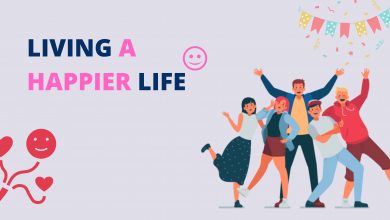Being Outdoors Boosts Your Mental and Physical Health

When you spend your days cooped up in a cubicle or tied to the desk in your home office, you start to feel like the walls are closing in around you. Your world shrinks to the size of your workspace and, over time, it can really become a drain on your mental and physical health. When you start to feel cabin fever setting in, grab a jacket and head outside – a little sun is just what you need!
Spending time outdoors is great for your mental and physical health. Not only does it give you a chance to break free from the shackles of your obligations, but it can boost your mood, reduce stress levels, and improve healing and immunity. Read on to learn 7 ways being outside can help improve your physical and mental health.
Energy Levels and Physical Health
Each and every day, you are bombarded with a litany of things that are constantly vying for your attention. Work, school, and family obligations can be incredibly draining on your mental and physical energy, but spending outdoors could relieve some of that fatigue. Studies show the simple act of enjoying nature and experiencing a feeling of awe can boost your energy levels. In fact, one study showed that people had higher energy levels after just looking at nature photos.[1]
Mood and Mental Health
Natural light is a one-ingredient recipe for a better mood. There’s a reason depression and anxiety rates tend to increase in the winter – shorter, darker days can lead to an increase in symptoms of Seasonal Affective Disorder (SAD). A healthy dose of sunlight has the power to help relieve depression and reduce symptoms of anxiety. In one study, just five minutes of outdoor exercise yielded improvements in both mood and self-esteem.[2]
Activity Levels
Even on the best of days it can be difficult to motivate yourself to work out, but there’s something about being outdoors that makes you want to be active. It’s no secret that sedentary lifestyles are associated with indoor living, but those who spend more time outdoors tend to be more active. In one study, researchers found that children were more than doubly active when they were outside versus inside.[3]
Focus and Concentration
Spending your days staring at a computer can lead to mental fatigue and, over time, you may feel your concentration and focus starting to fade. Studies show spending time outdoors can increase concentration, particularly in cases of attention-deficit hyperactivity disorder (ADHD).[4] One study showed that spending time in nature was more beneficial for increasing focus than walking through an urban environment or simply taking a break from activity.[5]
Reducing Pain and Speeding the Healing Process
Spending time outdoors helps you get your daily dose of vitamin D which plays an important role in many essential bodily processes. It can also reduce inflammation and mitigate pain. In one study, simply adding a plant to a hospital room reduced the length of hospital stays as well as the need for pain medication.[6] Other research suggests exposure to natural light may help speed healing and recovery.
Bolster the Immune System
Not only can spending time outside help your body heal more quickly, but it may actually help protect you against disease as well. Natural sunlight plays a role in boosting the activity of specialized cells in the immune system called T cells which help fight infection.[7] Being outside may also expose you to organic compounds called phytoncides which may help improve immune function.[8]
Feel More Positive About Your Life and Others
There’s something about spending time outdoors that makes you feel alive. It boosts your energy and relieves stress, helping you see things through new eyes – it may even change your outlook on life. In a series of experiments conducted at the University of California, Berkeley, researchers found that after spending time in nature, participants were more trusting, generous, and helpful toward others.[9]
When life starts to get you down, sometimes all you need is a change of scenery. Spending time outdoors can free you from the feelings of stress and isolation that start to settle in over the course of a busy workday (or an agonizing work week). If you find that your anxiety or depression is affecting your day-to-day life, you can always speak with a mental health professional. With telehealth, you can now access online counseling that’s easy and affordable.
[1] https://journals.sagepub.com/doi/abs/10.1111/j.1467-9280.2008.02225.x
[2] https://pubmed.ncbi.nlm.nih.gov/20337470/
[3] https://ijbnpa.biomedcentral.com/articles/10.1186/1479-5868-7-31
[4] https://journals.sagepub.com/doi/abs/10.1177/1087054708323000
[5] https://journals.sagepub.com/doi/abs/10.1177/0013916591231001
[6] https://www.ncbi.nlm.nih.gov/pmc/articles/PMC4929355/
[7] https://gumc.georgetown.edu/news-release/sunlight-offers-surprise-benefit-it-energizes-infection-fighting-t-cells/#:~:text=Georgetown%20University%20Medical%20Center%20researchers,central%20role%20in%20human%20immunity.&text=%E2%80%9CThis%20study%20shows%20that%20sunlight,cells%20by%20increasing%20their%20movement.%E2%80%9D
[8] https://www.ncbi.nlm.nih.gov/pmc/articles/PMC2793341/
[9] https://www.sciencedirect.com/science/article/abs/pii/S0272494413000893





